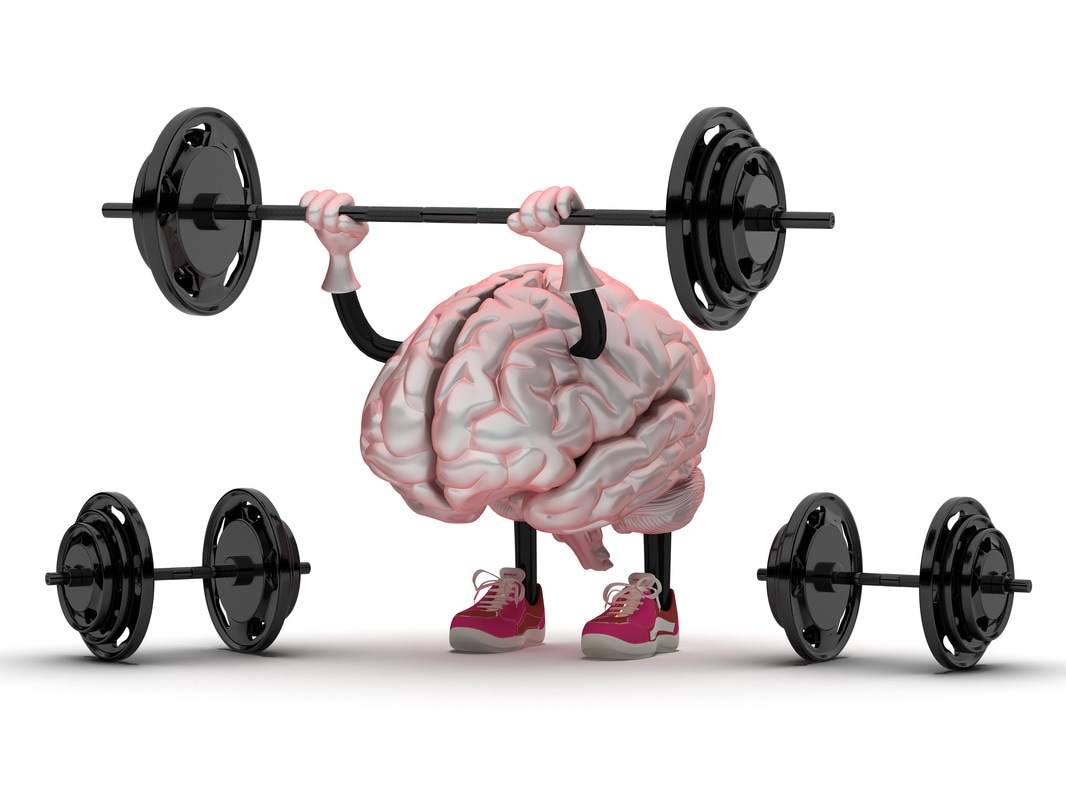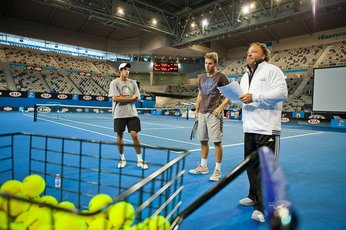|
Read for motivation. Just as the right song can push you through a challenging obstacle, the right book or article can sharpen your focus. Until I read Season of Life, by Jeffrey Marx, I wasn’t sure how to show my players how much I cared about them. Just when I thought there would never be another book as inspirational as Season of Life, Joe Ehrmann, the subject of Season of Life, released InSideOut Coaching. Coach Ehrmann challenges coaches to develop a coaching philosophy based on the following questions: 1. Why do I coach? 2. Why do I coach the way I do? 3. What does it feel like to be coached by me? 4. How do I define success? From philosophy to practice. Rather than putting the book down and reverting back to old habits, coaches and athletes (just take the above questions and change “coach” to “compete”) can share their developed philosophies. A covenant is a great way to put philosophy into committed practice. I learned this technique from Carol Hotchkiss at the Durango Institute a few years ago, and found it a bit easier to digest than a “contract.” The definition has been adapted to fit coaching and training:  COVENANT: a contract of agreement between the [institution/program], parents, and [athletes] that supports the mission and objectives of the [institution/program], respects the commitment and investment of the parents, and honors the potential and integrity of each [athlete]. (The Durango Institute)  In my role as a youth coach, I could use Ehrmann’s questions to establish the program’s philosophy, then have players, parents, and assistant coaches provide their expectations and obligations to each other. So a player submits a covenant to parents and coaches; parents submit a covenant to their son and coaches; coaches submit a covenant to players and parents. A covenant provides clear expectations and transparency from all involved. In my experience as a coach, I found sharing my coaching philosophy along with the covenants improved player and parent buy-in, provided me more autonomy with the school, and shifted focus from wins and losses to embracing each season as a unique experience. Writing as mental floss. Once a coach or athlete finds clarity in why they coach or compete, there are still the other parts of your lives that clutter your brains. So how do we clear our minds for competition? Combined with meditation and mindfulness practices, stream of consciousness writing, or Proprioceptive Writing, will bring focus, lift burdens, and resolve conflicts. You can write to remove mental obstacles that negatively impact performance. Tips for Stream-of-Consciousness Writing. 1. Establish clear rules or guidelines. These may include no rules or time limits. 2. Know your space & audience (journal, team, class, presentation) 3. Use model texts (Season of Life; InSideOut Coaching) 4. Find a routine — create a habit 5. Do something with it (read it, mark it up, share it, hide it, throw it away, don’t send it!) “Sometimes you’re the statue, and sometimes you’re the pigeon.” Coaches often use the cliche that there is always someone faster, smarter, stronger. That the competition is always finding ways to defeat you. As athletes find success, thinking like a novice can keep them from being “the statue.” Reading for inspiration and writing for drive encourages reflection and pushes athletes and coaches into a novice’s mindset. As novices: we dig in, cling to mentors, take risks, and strive to improve. The True Athlete Project is committed to learning from all True Athletes. If you have a book or piece of writing that has inspired you, or a writing prompt to share, please share with us by submitting your experience here! By Tim Chakwin, True Athlete Project Member, Dean of Residential Life and English professor at The McCallie School, Co-Founder of Chattanooga Lacrosse, Lacrosse Coach, Father of two energetic young athletes!
8 Comments
“It’s not the size of the dog in the fight, it’s the size of the fight in the dog.” - Mark Twain Mark Twain’s famous quote could not be a more fitting in the world of competitive tennis. Emotional Aptitude in Tennis peeks into why athletes with seemingly solid games lose... and lose often. Most players enter the game intently focused on improving technical (strokes), mental (strategic) and their athletic components. Unfortunately, these outward components are kidnapped due to under-developed emotional skill sets. I have written a new book, Emotional Aptitude in Sports, as a result of my curious obsession with the root causes of choking and panicking under stress. Why do a handful of players at the club have all the trophies? Why isn’t on-court stroke production, riding the stationary bike or buying the latest gear helping athletes earn more hardware? To the untrained eye, technique and mental toughness seems to take the blame for most losses. But if these components appear flawless in practice on Friday only to abandon the athlete in Saturday's match, there is definitely more to the story. All too often it’s an athlete’s lack of emotional aptitude that’s holding them hostage under stress. Successfully handling competitive pressure demands a more focused emotional developmental regimen. Decades of observational research has shown me that emotional aptitude is more important than “perfect” technique in athletic competition. Athletes are often frustrated that their match day performance is far inferior to their practice performance. The majority of tennis athletes interviewed believed that the inherent complexity of their sport is the cause of their stress that halts their success. But in actuality, their stress is caused by simply being judged. While every top athlete must be willing to put in the hours developing their technique, becoming physically fit and understanding tennis specific strategic plans, to be a successful competitor, they must also to be able to perform when it counts. As professionals, we see it every weekend, in every age division whether we realize it or not. Elegant looking, well trained athletes often wilt under the heat of competition while seemingly unorthodox looking competitors flourish. Why? The answer is the athlete’s lack of complete development- avoiding the development of the emotional component. Let's use the computer analogy to further explain this phenomena. I'd like you to look at an athlete the same way you look at your computer. For the computer to run efficiently both the external hardware and internal software packages work seamlessly together. For the athlete, their hardware package consists of their technical and athletic aptitude. Their software package consists of their mental and emotional aptitude. Far too many athletes are unevenly developed as competitors. Poor emotional aptitude actually causes your students technique to break down, their footwork to vanish, their focus to waver and their problem solving skills to abandon them when they need them the most. It’s our job as industry leaders to begin to develop the skill sets necessary to strengthen most athlete’s weakest link …which is the emotional muscle. Parents need to know that this situation is partially the teaching professional’s failure. As I travel across the country I see two very common teaching scenarios, one set of coaches are the political “snow job” artist and the second set are true developmental artist. I see the “snow job” artist at posh country clubs, in parks and rec's and coaching D-1 College. They are political masters. They fully understand that teaching “change” is difficult and uncomfortable. It's much, much easier for them to fluff over the difficult changes and keep everyone coming back smiling next week. I get it- if the athlete wants to hit and giggle. But in order to serve the best interest of the competitive tennis player, more of the second set of coaches are needed- those who choose to develop a complete athlete by developing technical, athletic, mental and emotional components to maximize the player’s potential. The True Athlete Project gives practical training to coaches so they can develop the whole athlete. Of course this produces a more well-rounded human being, but it also nurtures a finer athlete, who can handle competitive pressure demands. I employ the coaches to take the high road in the education of your children. The challenge for both the parents and the coaches is to do the research and improve so teaching the more difficult components becomes second nature. This requires both IQ... And emotional aptitude. Which brings us full circle. Understanding emotional aptitude as a parent or coach will help you help your athletes as you connect at a deeper level. It will aid you in mastering difficult components and conversations. Most importantly, emotional intelligence will assist you in developing more efficient competitors at crunch time. I’m convinced that the future leaders are the teachers who are open to learning and then sharing. This is what moves us all forward. Connect with Frank Giampaolo via Facebook or receive his free monthly newsletter at: www.maximizingtennispotential.com
Frank Giampaolo is a bestselling author of The Tennis Parent’s Bible, Championship Tennis and Raising Athletic Royalty. He is a sports education veteran, convention speaker, sports educator and instructional writer for ITF (International Tennis Federation), Coaching & Sports Science Review, UK Tennis magazine, USPTA, USTA, Tennis Magazine and Tennis View Magazine. He is planned to deliver workshops with The True Athlete Project beginning in 2017. |
AuthorInsightful contributions by our expert team and guest contributors! Archives
July 2020
Categories |
|
The True Athlete Project is formed of two independent legal entities: The True Athlete Project (US), which is a 501(c)(3) nonprofit organisation under US federal tax guidelines, and The True Athlete Project Ltd (UK), which is a UK charity, registration number: 1198569.
The UK entity and the US entity serve to strengthen one another but have distinct strategies and are independent of one another. The True Athlete Project (US): Tax ID: 81-1063080 The True Athlete Project Ltd. Companies House No: 12416150 © Copyright 2024. The True Athlete Project. All rights reserved. |



 RSS Feed
RSS Feed